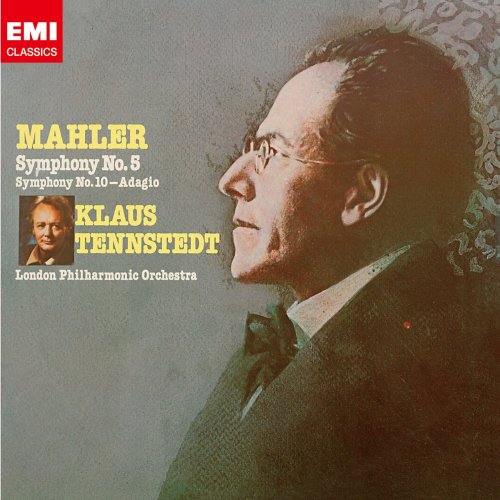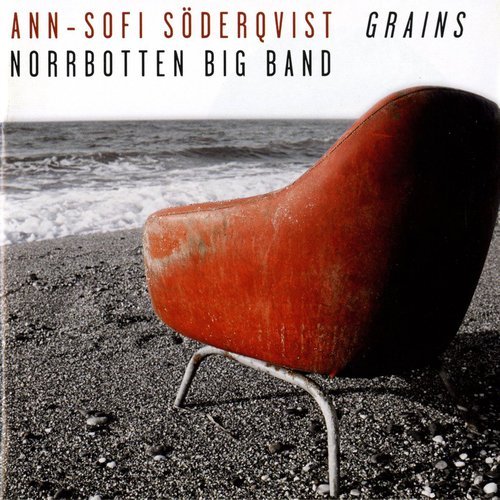Klaus Tennstedt - Mahler: Symphony No. 5 (2012) [Hi-Res]

Artist: Klaus Tennstedt
Title: Mahler: Symphony No. 5 (2011 - Remaster)
Year Of Release: 2012
Label: Warner Classics / Erato
Genre: Classical
Quality: FLAC (tracks) [96kHz/24bit]
Total Time: 01:44:04
Total Size: 1.83 GB
WebSite: Album Preview
Tracklist:Title: Mahler: Symphony No. 5 (2011 - Remaster)
Year Of Release: 2012
Label: Warner Classics / Erato
Genre: Classical
Quality: FLAC (tracks) [96kHz/24bit]
Total Time: 01:44:04
Total Size: 1.83 GB
WebSite: Album Preview
Symphony No. 5 in C Sharp Minor
1 I. Trauermarsch (In gemessenem Schritt. Streng. Wie ein Kondukt) [13:55]
2 II. Sturmisch bewegt. Mit grosster Vehemenz [15:16]
3 III. Scherzo (Kraftig, nicht zu schnell) [18:17]
4 IV. Adagietto (Sehr langsam) [11:56]
5 V. Rondo-Finale (Allegro) [16:35]
Symphony No. 10 (unfinished)
6 I. Adagio [28:14]
A man who had thought life held no greater challenge than could be provided by a smaller theater or second-tier orchestra somewhere in Central Europe, conductor Klaus Tennstedt found himself propelled into the celebrity spotlight following several acclaimed guest appearances. His frail psyche and unstable health eventually broke under the weight of these responsibilities and he was obliged to all but retire from active conducting. Nonetheless, those all-too-few years of international productivity revealed an intense, revelatory approach to familiar Romantic period scores and the rapturous applause he received from audiences and players alike was entirely deserved.
Tennstedt began his musical training with his father, violinist Hermann Tennstedt. After studies in violin and conducting at the Leipzig Hochschule fur Musik, young Tennstedt was engaged as orchestra leader at the Halle Stadttheater in 1948. Forced by a growth on his left hand to abandon the violin, Tennstedt redirected his energies to piano and conducting and he made his debut as conductor at Halle in 1952. Beginning in 1954, he was appointed a concertmaster at the opera in Chemnitz and in 1958, he became general music director at the Dresden Staatsoper, a position he held until 1962. From 1962 to 1971, Tennstedt was general music director at the Mecklenburg Staatsoper in Schwerin, a period that afforded him time for guest appearances with the Dresden Staatskapelle and Leipzig Gewandhaus orchestras, among other ensembles in Eastern European and Soviet bloc cities. When directing a 1971 concert in Sweden, Tennstedt elected to defect and thereafter began a period of work with the Swedish Radio Orchestra. Another position as general music director opened for him in 1972, this time at Kiel, and he remained in that post until 1976.
Meanwhile, a life-altering event for Tennstedt occurred in 1974. Invited to Canada to conduct the Toronto Symphony Orchestra in Bruckner's Symphony No. 7, the conductor's performance was greeted with such thunderous acclamation that word began to travel around the world. A Boston Symphony Orchestra appearance shortly thereafter brought international interest and Tennstedt's direction of Bruckner's Symphony No. 8 was the stuff from which legends are born. Invitations came from New York, Cleveland, Chicago, and Philadelphia, the other "big five" American orchestras. The amazed conductor made his British debut with the London Symphony Orchestra in 1976, prompting additional engagements with the Berlin Philharmonic, the Vienna Philharmonic, and the Paris Orchestra. Tennstedt was honored by becoming the first German conductor to conduct the Israel Philharmonic in 1978 and a year later was engaged by Hamburg's NDR Symphony Orchestra as principal conductor, a position he held until 1981. In 1979, he also became principal guest conductor with the Minnesota Orchestra and, from 1980, he held the same title with the London Philharmonic Orchestra. In 1983, Tennstedt was appointed music director of the London Philharmonic, leading the orchestra in recordings and on tours abroad that won adulatory reviews. In 1983, he made his debut with the Metropolitan Opera, leading impressive performances of Fidelio despite less than fully satisfactory singers.
Eventually, the burdens of celebrity exacted an immense toll. Two hip replacements, radiation treatment for throat cancer, and increasing numbers of cancellations hounded his work. Self-doubt crippled his ability to continue working at the level that had brought him fame. Doctors ordered extended periods of rest, but to little lasting benefit. When he collapsed at a rehearsal in 1987, Tennstedt resigned his post with the LPO, conducting the orchestra infrequently thereafter as conductor laureate. -- Erik Eriksson
Tennstedt began his musical training with his father, violinist Hermann Tennstedt. After studies in violin and conducting at the Leipzig Hochschule fur Musik, young Tennstedt was engaged as orchestra leader at the Halle Stadttheater in 1948. Forced by a growth on his left hand to abandon the violin, Tennstedt redirected his energies to piano and conducting and he made his debut as conductor at Halle in 1952. Beginning in 1954, he was appointed a concertmaster at the opera in Chemnitz and in 1958, he became general music director at the Dresden Staatsoper, a position he held until 1962. From 1962 to 1971, Tennstedt was general music director at the Mecklenburg Staatsoper in Schwerin, a period that afforded him time for guest appearances with the Dresden Staatskapelle and Leipzig Gewandhaus orchestras, among other ensembles in Eastern European and Soviet bloc cities. When directing a 1971 concert in Sweden, Tennstedt elected to defect and thereafter began a period of work with the Swedish Radio Orchestra. Another position as general music director opened for him in 1972, this time at Kiel, and he remained in that post until 1976.
Meanwhile, a life-altering event for Tennstedt occurred in 1974. Invited to Canada to conduct the Toronto Symphony Orchestra in Bruckner's Symphony No. 7, the conductor's performance was greeted with such thunderous acclamation that word began to travel around the world. A Boston Symphony Orchestra appearance shortly thereafter brought international interest and Tennstedt's direction of Bruckner's Symphony No. 8 was the stuff from which legends are born. Invitations came from New York, Cleveland, Chicago, and Philadelphia, the other "big five" American orchestras. The amazed conductor made his British debut with the London Symphony Orchestra in 1976, prompting additional engagements with the Berlin Philharmonic, the Vienna Philharmonic, and the Paris Orchestra. Tennstedt was honored by becoming the first German conductor to conduct the Israel Philharmonic in 1978 and a year later was engaged by Hamburg's NDR Symphony Orchestra as principal conductor, a position he held until 1981. In 1979, he also became principal guest conductor with the Minnesota Orchestra and, from 1980, he held the same title with the London Philharmonic Orchestra. In 1983, Tennstedt was appointed music director of the London Philharmonic, leading the orchestra in recordings and on tours abroad that won adulatory reviews. In 1983, he made his debut with the Metropolitan Opera, leading impressive performances of Fidelio despite less than fully satisfactory singers.
Eventually, the burdens of celebrity exacted an immense toll. Two hip replacements, radiation treatment for throat cancer, and increasing numbers of cancellations hounded his work. Self-doubt crippled his ability to continue working at the level that had brought him fame. Doctors ordered extended periods of rest, but to little lasting benefit. When he collapsed at a rehearsal in 1987, Tennstedt resigned his post with the LPO, conducting the orchestra infrequently thereafter as conductor laureate. -- Erik Eriksson




![Andreas Røysum Ensemble - Andreas Røysum Ensemble with Marvin Tate (2025) [Hi-Res] Andreas Røysum Ensemble - Andreas Røysum Ensemble with Marvin Tate (2025) [Hi-Res]](https://img.israbox.com/img/2026-02/09/ykeodm7hf0rcmt815qdtlvyfd.jpg)

![Miles Davis - The New Sounds (Remastered 2026) (1951) [Hi-Res] Miles Davis - The New Sounds (Remastered 2026) (1951) [Hi-Res]](https://www.dibpic.com/uploads/posts/2026-02/1770742585_cover.jpg)

![Dela Hüttner’s SwingThing - Pause for a moment (2026) [Hi-Res] Dela Hüttner’s SwingThing - Pause for a moment (2026) [Hi-Res]](https://www.dibpic.com/uploads/posts/2026-02/1770561049_cover.jpg)